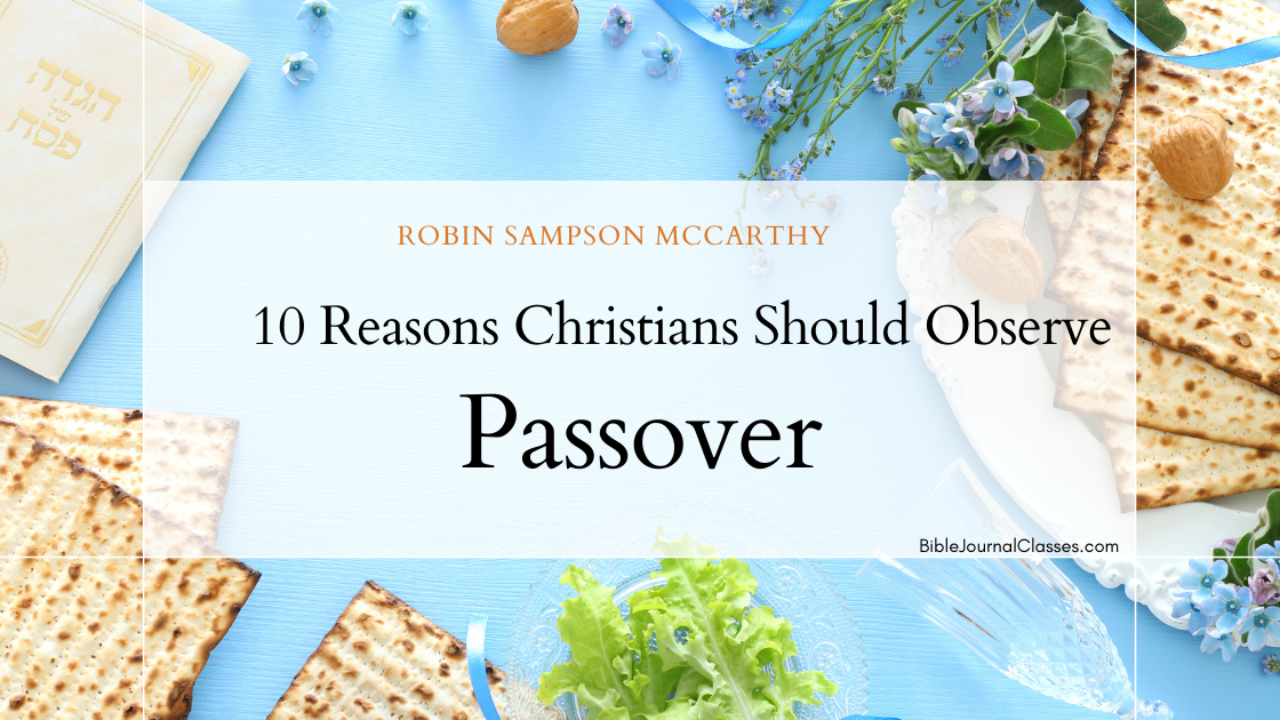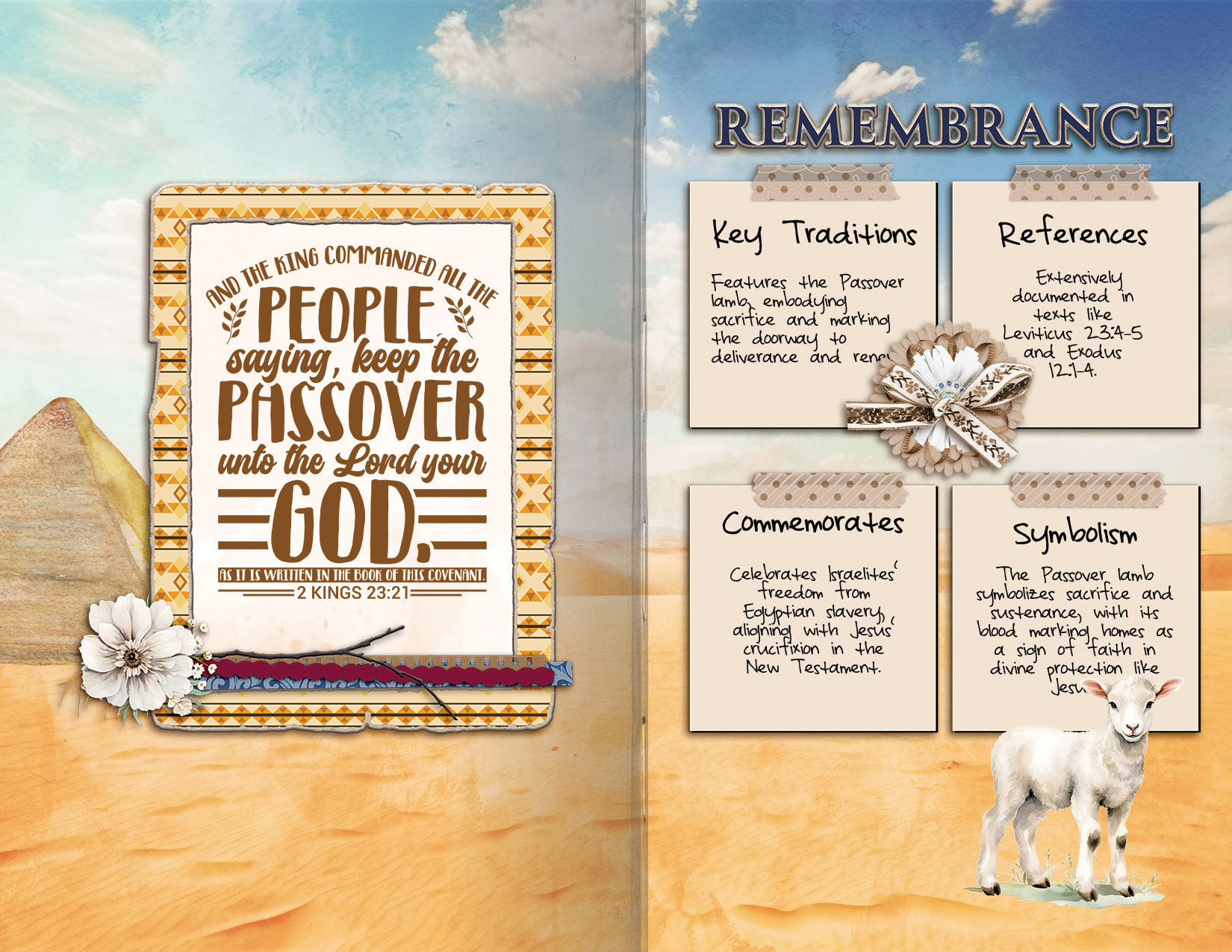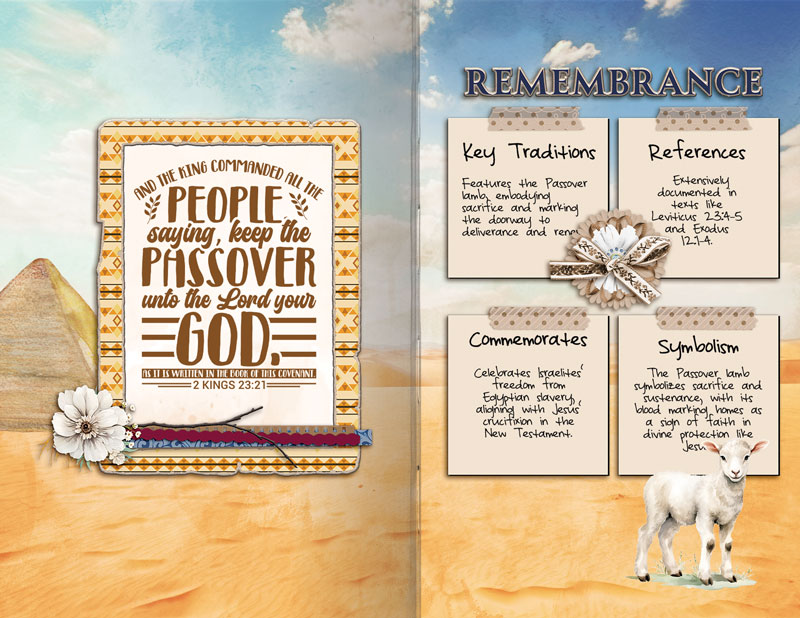
Passover is traditionally observed by Jewish communities around the world, but there are compelling reasons why Christians might also find deep spiritual meaning in participating in this ancient feast. After all, we serve a Hebrew Lord, who was followed by Hebrew disciples, and we study Hebrew books—so why would we ignore the holidays that illuminate Scripture?
Here are ten reasons why Christians should consider embracing Passover as part of their faith journey.
1. Jesus Observed Passover
Jesus himself celebrated Passover throughout his life. In fact, the Last Supper that Christians commemorate was a Passover meal. By participating in Passover, Christians connect directly with a practice that was central to Jesus's own religious observance. Walking in his footsteps in this tangible way can deepen one's relationship with Christ.

2. It Connects Christians to Their Biblical Roots
Christianity emerged from Judaism, and understanding these roots provides context for many Christian beliefs and practices. Observing Passover helps Christians appreciate the historical and theological foundation of their faith. This connection can enrich understanding of Scripture and Christian tradition.

3. It Illuminates the Symbolism of Communion
The Christian sacrament of Communion (or the Eucharist) was instituted during a Passover meal. Understanding the Passover context brings new layers of meaning to this central Christian practice. The symbolism of the bread and wine takes on additional significance when viewed through the lens of the Passover meal.

4. It Offers a Powerful Teaching Opportunity
Passover provides a multi-sensory, participatory way to teach biblical stories and principles to children and new believers. The hands-on nature of the Seder meal, with its symbolic foods and interactive storytelling, makes abstract concepts tangible and memorable.

5. It Deepens Understanding of Salvation
The Passover story of deliverance from slavery in Egypt parallels the Christian understanding of salvation and freedom from sin. The lamb's blood that protected the Israelites foreshadows Christ's sacrifice. Experiencing Passover can help Christians grasp these connections in profound ways. The Old Testament holidays weren't arbitrary celebrations—they were prophetic shadows of Christ's life, death, resurrection, and promised return, offering a deeper understanding of our Christian faith and heritage.

6. It Honors Our Faith's Hebrew Foundations
We serve a Hebrew Lord, followed by Hebrew disciples, and study Hebrew books—why would we ignore the holidays? Learning about these biblical feasts is like putting a floodlight on the Bible. When Christians embrace Passover, they acknowledge and honor the Hebrew roots from which Christianity flowered, creating a more complete and authentic understanding of their faith.

7. It Reinforces the Importance of Remembrance
Passover is fundamentally about remembering God's faithfulness and deliverance. This practice of intentional remembrance is a spiritual discipline that can strengthen faith. The Passover command to remember and retell the story each year reminds Christians of the importance of passing down faith through generations.

8. It Highlights Themes of Freedom and Deliverance
The Exodus story at the heart of Passover emphasizes God's concern for the oppressed and His desire for justice and freedom. These themes resonate with Christian values and can inspire believers to work for justice in the world today.

9. It Provides a Fresh Spiritual Experience
For many Christians, participating in a Seder meal or adapting Passover observances can provide a fresh, meaningful spiritual experience that complements traditional Christian practices. The rich symbolism and participatory nature of Passover can reinvigorate faith. Learning about biblical holidays is like putting a floodlight on the Bible—suddenly, passages and connections that were once obscure become brilliantly illuminated, breathing new life into familiar Scriptures.

10. It Emphasizes God's Faithfulness Throughout History
Passover celebrates God's faithfulness to His covenant promises. For Christians, this offers reassurance that the same faithful God continues to work in history and in individual lives. The Passover story reminds believers that God is present in both national and personal struggles.

Conclusion
While Christians are not bound by Jewish law to observe Passover, there is great spiritual value in engaging with this biblical feast. Whether through participating in a traditional Seder, hosting a modified Christian version, or simply studying the Passover story during Holy Week, Christians can find their faith enriched by connecting with this ancient practice.
As we seek to follow Christ more fully, exploring the festivals He observed offers a meaningful way to deepen our understanding of Scripture and grow in faith. When we recognize that the seven feasts outlined in Leviticus 23—Passover, Unleavened Bread, Firstfruits, Shavuot, Trumpets, Atonement, and Tabernacles—along with Sabbath, Hanukkah, and Purim, all reveal aspects of Christ's ministry and redemptive work, we unlock a treasure trove of spiritual insight.
Jesus in the Biblical Holidays Book

Now Available
These biblical holidays serve as bridges between the Old and New Testaments, illuminating how ancient rituals relate to our faith today. By exploring them, we not only honor our spiritual heritage but also gain a richer understanding of Jesus' fulfillment of prophecy through these divine appointments. Passover, with its rich symbolism pointing to Christ's redemptive work, deserves a special place in Christian spiritual practice.
Passover Haggadah
This Haggadah is inexpensive and functional for a Christian Seder. This 24-page booklet tells us each step of the seder, illustrating the first Passover and the symbolism of Christ our Passover. Download the PDF, print, cut, fold, learn, assemble, share, and display! In the Bible Journal Love Etsy Shop.














